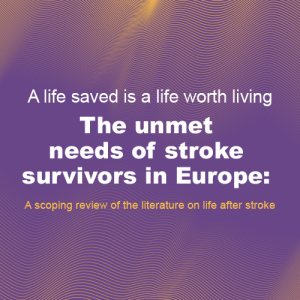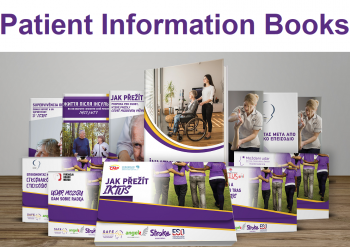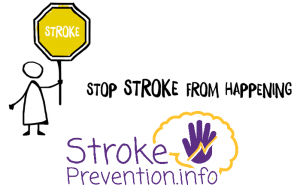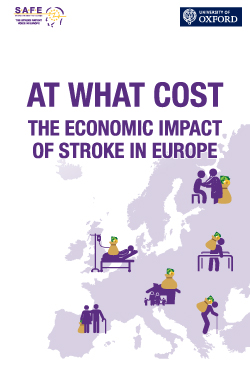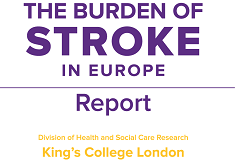
Mar 13, 2018
Published first on ScienceDaily
A landmark international study of DNA samples from 520,000 individuals worldwide — including 67,000 affected individuals — identified 22 new genetic risk factors for stroke. Sudha Seshadri, M.D., of UT Health San Antonio, is senior co-author of this largest genetic study of stroke to date. Nature Genetics published the results online March 12 2018.
Previously, only 10 genetic risk factors had been identified for stroke.
Dr. Seshadri, founding director of the Glenn Biggs Institute for Alzheimer’s & Neurodegenerative Diseases at UT Health San Antonio and holder of the university’s Robert Barker Distinguished University Chair, said the identification of genetic regions that are strongly correlated to stroke will increase potential targets for stroke drug development. (more…)

Mar 13, 2018
Published first on ScienceDaily
A new study has found that people with dengue fever have a higher risk of stroke, especially in the first 2 months following infection. The study is published in CMAJ (Canadian Medical Association Journal).
“Clinicians in dengue-endemic areas should be aware of this association, especially for patients with dengue who have neurologic deficits or for patients with stroke who have unexplained fever,” writes Dr. Chia-Hung Kao, Department of Nuclear Medicine and PET Center, China Medical University Hospital, Taichung, Taiwan, with coauthors.
Dengue is a mosquito-borne viral infection that infects at least 100 million people every year around the world, with about 4 billion people at risk of the illness, which includes dengue hemorrhagic fever that can lead to spontaneous bleeding, organ failure and death. It is found in many countries in South and Southeast Asia, Africa, South America, the Caribbean, in the United States and more. (more…)

Mar 13, 2018
Published first on ScienceDaily
Doctors caring for severe stroke patients need to take account of their psychological needs and help prepare families for the possibility that they may not recover, a study suggests.
Patients and their families experience debilitating feelings of loss and uncertainty following a major stroke that impact on their quality of life, the findings show.
The results, from repeat interviews carried out over six months, also suggest that healthcare professionals should not shy away from sensitive discussions about death.
The study by the Universities of Edinburgh and Glasgow followed patients in Scotland over the course of a year following a severe form of stroke. Healthcare staff and family carers were also interviewed. (more…)

Mar 13, 2018
Published first on ScienceDaily
New research published in the journal Nature for the first time reveals the atomic structure of a key molecular component of the nervous system.
Scientists at OHSU used advanced imaging techniques to ascertain the resting state of an acid-sensing ion channel. “They are really important ion channels that are spread throughout the body,” said senior author Eric Gouaux, Ph.D., senior scientist with the OHSU Vollum Institute and an investigator with the Howard Hughes Medical Institute. “People have pursued them as targets for stroke therapies, and they clearly have important roles in pain transduction.” (more…)

Mar 13, 2018
Published first on ScienceDaily
Notoriously remembered as a major pharmaceutical scandal approximately 60 years ago, thalidomide caused severe birth defects since many pregnant women took the drug as a remedy for their morning sickness. In recent years, however, thalidomide and its derivatives have been widely used to treat hematologic malignancies such as multiple myeloma.
Further, evidence suggests that it also has a neuroprotective effect, reducing both oxidative stress and inflammatory response, but the exact molecular mechanisms of thalidomide on the brain were unknown.
To investigate, scientists at Waseda University and Tokyo University of Pharmacy and Life Sciences studied thalidomide’s target protein, cereblon (CRBN), and its binding protein, AMP-activated protein kinase (AMPK), which plays an important role in maintaining intracellular energy homeostasis in the brain. Through their study, they revealed that thalidomide inhibits the activity of AMPK via CRBN under oxidative stress and suppresses nerve cell death. (more…)
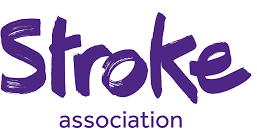
Mar 2, 2018
Stroke clubs and groups provide essential long-term peer support to stroke survivors, carers, family and friends. They provide an opportunity for those who have been affected by stroke to rediscover previous skills, learn new skills, regain confidence, increase independence and socialise with other individuals who have had similar experiences.
 Stroke Association has received funding for our Hand in Hand peer support programme. This is an ambitious, five-year project enabling us to scale our experience, expertise and knowledge of peer support for the benefit of local stroke communities.
Stroke Association has received funding for our Hand in Hand peer support programme. This is an ambitious, five-year project enabling us to scale our experience, expertise and knowledge of peer support for the benefit of local stroke communities.
As part of this programme, we would like to share some of our experience, expertise and knowledge of peer support with other SAFE members, and to hear about your experiences and insights in delivering peer support. We will hold a webinar on Monday 26th March 2018, 11am BST, 12pm CET (more…)



